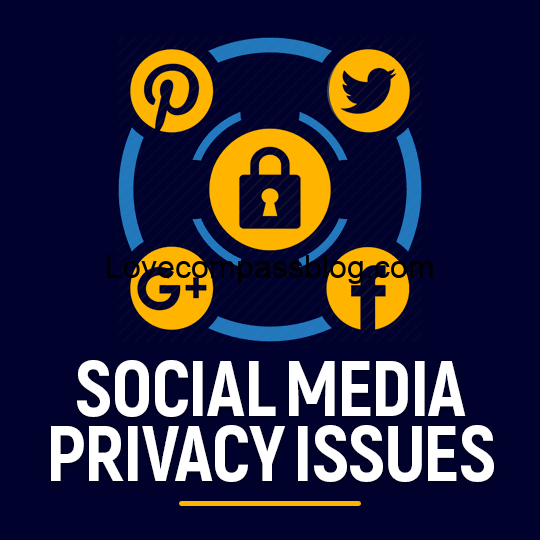How to Keep Your Relationship Private but Not Secret

In an age where everything is shared at the speed of a click, choosing to keep a relationship private might feel like swimming upstream. While there is nothing wrong with public displays of affection or sharing moments with the world, many couples prefer to keep their relationship away from the public eye. But, what does it mean to have a private relationship as opposed to a secret one? And how do you strike the balance between protecting your relationship and hiding it altogether?
This article explores the nuances between private and secret relationships and provides a detailed roadmap to help you navigate the delicate balance of maintaining your relationship’s privacy while still being open with those around you.
Difference Between Private and Secret Relationships

Before moving into the ways to maintain privacy, it’s crucial to first distinguish between a private relationship and a secret relationship. While the terms may seem interchangeable, they represent very different dynamics, and understanding this distinction is key to ensuring a healthy and balanced relationship.
What is a Private Relationship?
A private relationship is one where the couple decides to keep specific details about their relationship away from public scrutiny, but the relationship itself is not hidden. People in your life are aware of your partner, and you may occasionally share aspects of your relationship with close friends and family. The intention behind privacy is to protect the relationship’s sanctity without being overly exposed to external opinions and judgments.
For instance, in a private relationship, you might:
- Limit social media posts that showcase every aspect of your relationship.
- Share meaningful moments selectively with close friends and family, but not broadcast everything to the world.
- Enjoy social gatherings with your partner but avoid making the relationship the center of attention.
A private relationship is about safeguarding your personal connection, ensuring that it isn’t weighed down by unnecessary external influences.
What is a Secret Relationship?
On the other hand, a secret relationship involves actively concealing the existence of the relationship itself. In this case, the couple hides the fact that they are together from everyone, including close friends, family, and even coworkers. There might be several reasons for keeping a relationship secret, including fear of judgment, cultural differences, or personal insecurities.
Signs of a secret relationship often include:
- Avoiding being seen together in public.
- Not introducing your partner to your inner circle of friends or family.
- Excuses and cover-ups when it comes to explaining who you’re spending time with.
In contrast to privacy, secrecy is built on avoidance and concealment, which can lead to feelings of distrust and insecurity over time. This is why it’s important to understand the motivations behind keeping a relationship out of sight, as secrecy can often be harmful in the long run.
Key Differences Between Private and Secret Relationships

While both private and secret relationships aim to keep certain aspects hidden, their core differences lie in intent and openness.
Privacy: A Boundary of Discretion
- A private relationship is about choosing which aspects to keep personal without hiding the existence of the relationship.
- The couple decides on boundaries, such as what to share with the public or social media, and what to keep between themselves.
- It builds a sense of emotional intimacy by focusing on what truly matters within the relationship without external pressure.
Secrecy: A Shield of Concealment
- In a secret relationship, the focus is on hiding the existence of the relationship itself.
- It involves deliberately avoiding public acknowledgment and often conceals the relationship from those closest to the individuals involved.
- Secrecy can foster distrust and lead to insecurity, as the hidden nature of the relationship might suggest deeper issues like fear, shame, or uncertainty.
Ultimately, privacy in a relationship is about protecting the bond, while secrecy can indicate something to hide.
Why Do People Prefer Private Relationships?

In an era where sharing every detail of our lives has become normalized, many couples prefer the quiet strength of a private relationship. The decision to maintain privacy often stems from the desire to protect intimacy and create a safe space for the relationship to grow without unnecessary outside input.
Common Reasons for Private Relationships
- Reducing External Influence: Keeping your relationship private limits outside opinions, which can sometimes cause undue stress or strain on a couple. Well-meaning friends and family might offer advice or judgments, and privacy helps to shield the relationship from such interference.
- Strengthening Emotional Intimacy: A private relationship gives partners the opportunity to grow closer on their terms, without feeling pressured to perform or prove their love in front of others.
- Preserving Autonomy: When you maintain a level of privacy, both partners can focus on their individual needs as well as their connection. This balance of personal and shared life strengthens the relationship as each partner continues to grow individually.
Privacy vs. Public Relationships
While some people prefer to keep their love lives private, others find joy in sharing their relationship with the world. There’s no one-size-fits-all approach—what matters most is that both partners are aligned in how much or how little they want to share. Couples who prefer to be more public may:
- Post photos of their partner regularly on social media.
- Share relationship milestones, such as anniversaries or vacations, openly with their circle of friends.
Even in public relationships, maintaining some level of privacy is essential. For example, many couples choose to keep arguments or disagreements private to avoid turning their relationship into a spectacle.
How to Protect and Maintain Privacy in a Relationship

Establishing and maintaining a private relationship is about setting boundaries and ensuring that both partners are comfortable with the level of exposure. This involves both communication and a mutual understanding of what privacy means for the couple.
Setting Boundaries for Relationship Privacy
Boundaries are the cornerstone of a private relationship. They allow each partner to feel safe and respected while protecting the relationship from external stressors. Some key aspects to consider when setting boundaries include:
- What to Share and What to Keep Private: Have a discussion about what parts of your relationship you feel comfortable sharing with friends, family, and social media. For example, you may choose to share some milestones with close friends but keep intimate details between yourselves.
- Social Media Boundaries: Decide how much of your relationship will be shared online. Some couples prefer to limit public posts, while others may avoid posting altogether. For a private relationship, it’s common to post occasionally but with discretion.
- Who Knows About the Relationship: Privacy doesn’t mean hiding the relationship from everyone. Decide together who you want to introduce your partner to—this could be close friends, family, or work colleagues. A discreet relationship might mean keeping your circle informed, but not broadcasting every update.
Managing Social Media and Relationship Privacy
In the digital age, social media plays a significant role in how relationships are perceived. While some couples enjoy sharing their love stories online, others prefer to keep their digital footprint minimal. Here are some ways to maintain your relationship’s privacy on social media:
- Occasional Sharing: You don’t need to avoid social media entirely. Posting occasionally, such as a birthday celebration or an anniversary, can strike a healthy balance without overexposing your relationship.
- Respecting Privacy Settings: Adjusting privacy settings on your social media accounts ensures that only trusted friends and family see posts related to your relationship.
- Avoiding Overexposure: It’s tempting to share every moment, but overexposure can lead to unnecessary opinions or judgments from those outside your inner circle.
Healthy Boundaries: Protecting Your Relationship’s Integrity

One of the key aspects of a healthy private relationship is the ability to set and maintain boundaries that work for both partners. These boundaries are essential for preserving the emotional integrity of the relationship and fostering trust.
Examples of Healthy Private Relationship Boundaries
- Social Boundaries: Decide how you will navigate public settings. For example, you may attend social events together but keep intimate details out of conversations.
- Communication Boundaries: Be clear with each other about what you’re comfortable sharing with others. One partner might be more private than the other, and open dialogue ensures that no one feels pressured.
- Digital Boundaries: With social media’s pervasive role in modern relationships, it’s important to establish boundaries around what gets shared online. A healthy private relationship may involve a mutual agreement to keep posts about the relationship minimal or limited to certain close contacts.
Examples of Private Relationships
Many couples exemplify the private relationship approach. They are open enough for their close circle to know they’re together, but they avoid the spotlight. Let’s look at some examples.
Private Relationship Examples in Real Life
Consider a couple that enjoys going to social gatherings but doesn’t feel the need to document every moment online. They may be known as a couple within their friend group, but they don’t make their relationship a focal point of conversation. They maintain their relationship boundaries by sharing meaningful updates with those closest to them but avoid broadcasting everything publicly.
Another example could be a couple who prioritizes their relationship’s growth without needing external validation. They may post a photo on social media for special occasions but choose to limit everyday updates to preserve their connection’s intimacy.
Signs of a Healthy Private Relationship
- Mutual Trust: Both partners trust each other to maintain the agreed-upon boundaries.
- Respect for Privacy: Each partner respects the other’s desire for privacy without feeling like they’re being hidden from the world.
- Healthy Communication: Open discussions about what’s shared and what’s kept private ensure that both partners are on the same page.
Misconceptions About Private Relationships

There are many misconceptions surrounding private relationships. Some people equate privacy with secrecy, while others assume that a private relationship is a sign of something to hide. However, these are misguided beliefs that overlook the importance of maintaining a sense of intimacy and personal boundaries in a relationship.
Myth 1: Private Relationships Mean You’re Ashamed of Your Partner
One common misconception is that if you keep your relationship private, you’re embarrassed or ashamed of your partner. However, choosing privacy is not about hiding your partner but rather protecting the relationship from unnecessary scrutiny and judgment. Couples in private relationships understand that overexposure, especially in the age of social media, can create stress or foster external pressure.
Myth 2: Private Relationships Lack Commitment
Another myth is that if you’re not showing off your relationship, it somehow lacks seriousness or commitment. In reality, relationship boundaries are set to create a stronger bond between the partners. It’s not about how much you show the world but about the connection that you build together in private.
Myth 3: Private Relationships Are Just Secret Relationships in Disguise
Perhaps the most common misconception is that privacy equates to secrecy. As discussed earlier, there is a stark difference between a private relationship and a secret relationship. While secret relationships often involve deceit and avoidance, private relationships are about intentionally deciding what to share and keeping the focus on the relationship itself.
Is It Healthy to Have a Private Relationship?

The question of whether it is healthy to have a private relationship comes down to the intent behind the privacy. For many couples, privacy is a sign of trust and respect. By choosing what to share and keeping some aspects just between them, couples can cultivate a sense of emotional closeness that is free from the judgment of others.
The Benefits of Privacy in Relationships
- Protection from External Opinions: One of the key benefits of maintaining privacy is shielding the relationship from potentially harmful external opinions or advice that can create unnecessary tension.
- Focus on Emotional Intimacy: When a relationship is private, both partners can focus on nurturing their emotional bond without the distraction of public approval or disapproval.
- Healthy Space for Growth: Privacy allows couples to grow together, learn from each other, and handle any challenges within their relationship without outside interference.
Balancing Privacy and Openness
However, it’s important to strike a balance. A healthy private relationship should still involve openness with close friends and family. You shouldn’t feel like you’re hiding your partner, but instead, ensuring that your connection grows in a protective space.
Couples who maintain privacy often find that this boundary allows them to be more vulnerable with each other and less concerned about performing for others.
Private Relationship Quotes: Wisdom on Keeping Love Protected
Many people have expressed the beauty and wisdom of maintaining a private relationship through quotes. These quotes capture the essence of love that is nurtured in private and not broadcast to the world. Here are some thought-provoking ones to reflect on:
- “A private relationship is like a rare gem, beautiful when kept secure and away from unnecessary exposure.”
- “Keep your relationship private, but don’t let it be a secret. There’s beauty in protecting what’s precious.”
- “Sometimes the happiest relationships are the ones you don’t need to put on display.”
These sentiments highlight how private relationships can thrive when couples protect their bond without feeling the need to validate their love through external recognition.
Private Relationship Rules: Practical Tips to Keep Your Relationship Private But Not Secret

Here are some practical rules to help you maintain a private relationship without crossing the line into secrecy:
- Communicate Boundaries Early: From the start, have an open conversation about what both of you are comfortable sharing and what you’d like to keep private. This prevents misunderstandings later on.
- Limit Social Media Presence: While social media can be a fun way to share parts of your life, it’s not necessary to broadcast every moment. Avoid the pressure to constantly post about your relationship, and instead focus on cherishing moments offline.
- Focus on Each Other, Not Others: A private relationship is about the two of you, not the opinions of outsiders. Prioritize your partner and the relationship over what others might think or say.
- Introduce Your Partner to the Important People: A private relationship doesn’t mean your partner is a secret. Make sure they are known to those who matter in your life—friends, family, and close colleagues.
- Don’t Engage in Relationship Drama Publicly: If conflicts arise, keep them between yourselves. Publicly airing grievances only invites external opinions that could complicate your relationship further.
Signs of a Healthy Private Relationship
Maintaining a private relationship often involves subtle, yet powerful signs that your relationship is thriving without the need for public validation. Some signs that you’re in a healthy private relationship include:
- Both Partners Respect Boundaries: Each partner is on the same page about what to share and what to keep private, leading to a sense of mutual respect and understanding.
- Emotional Intimacy is Strong: You feel closer to your partner because you’ve built your relationship away from the noise and distractions of the outside world.
- No Feelings of Secrecy or Shame: You’re not hiding the relationship from the people who matter most, even if you choose to limit what’s shared publicly.
- Freedom from External Pressure: There’s no need to “perform” for social media or keep up appearances. Your focus remains on the relationship itself.
Keeping Your Relationship Private on Social Media

In today’s digital world, social media is one of the most challenging aspects of maintaining a private relationship. While it’s tempting to share your relationship status or post pictures with your partner, it’s important to set boundaries that feel right for you both.
Some tips for maintaining privacy on social media include:
- Minimize Relationship Posts: You don’t need to delete your online presence, but you can limit the number of posts that revolve around your relationship.
- Use Close Friends Settings: If you do want to share certain moments, use social media features like “close friends” settings to ensure only trusted individuals see them.
- Avoid Online Drama: Don’t air out your relationship conflicts or emotional moments on public platforms. Keep discussions about your relationship offline where they belong.
By managing your social media presence mindfully, you can enjoy a balance of privacy while still participating in the online world.
Conclusion
Maintaining a private relationship can strengthen emotional intimacy, protect your connection from external pressures, and create a safe space for the relationship to grow. The key is in setting boundaries that both partners are comfortable with, ensuring that privacy is rooted in mutual respect and not secrecy.
Now that you know how to keep your relationship private but not secret, it’s time to evaluate your current relationship and see where adjustments can be made to foster stronger emotional bonds and reduce external interference. Whether you prefer a more public relationship or one grounded in privacy, the most important thing is that both you and your partner feel secure and respected.
Are you ready to set healthier boundaries in your relationship? Keep the conversation open, respect each other’s needs, and continue to build a relationship that thrives in its private yet meaningful way.





